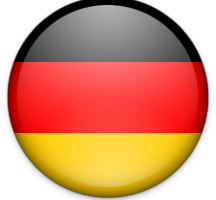Applying for a PhD Position in Germany and the Types of PhD Positions

The largest number of students coming to Germany are those who have completed their Bachelor’s degree in Pakistan and want to do their Masters in Germany. With more than 500 programs available in English language, finding one of your choice is not that difficult. For Bachelors, there are less than a 100 programs and so it’s not always possible to find a program which interests you. However, the focus of this document is how to apply for a PhD position and what type of PhD positions are available in Germany.
The good news about PhD positions in Germany is that it’s always funded. You do not need to worry about additional scholarships. The important thing to note here is that a large part of the German economy is based on research and technology. Companies like Infineon, Siemens, BMW, Mercedes Benz, Nokia Siemens Networks, Intel etc. all have research divisions and also offer PhD positions. Other than this, companies form collaborations with universities and provide funding for the research being carried out by universities. German as well as EU projects also help bring funding to universities. In short, there are many funding sources available to competent professors for them to employ PhD students to carry out research and development.
The first part of this document is about how to look and apply for PhD positions whereas the second part will explain the two types of PhD positions available in Germany.
The procedure to apply for PhD positions is different than in other parts of the world (in some other European countries, its similar). Only a few universities have a PhD program with application deadlines. Most PhD positions can be advertised at any time during the year depending on e.g. start of some new project for which funding has become available.
A good starting step for beginners is DAAD’s website. Use the search tool there:
http://www.daad.de/
As of now, there are about 300 search results for PhD level studies (including all areas). You can narrow down the search results by choosing your field. For the programs available on DAAD, there might be application deadlines.
To search for PhD positions, it’s important to identify the universities which have institutes working in the area of your interest. Visit the websites of these institutes and see if there are any PhD positions advertised there. If there are already some positions available, you may apply for those. Highlight previous relevant knowledge of the area or related areas if you have and tailor your documents to reflect interest in working in that area. If there are no positions advertised, you may still send an email to the professor and express your deepest desire to work at his institute. Same applies for companies which offer PhD positions.
For required documents, a document is already available here: http://wp.me/p2z7Do-Bk
What you must remember is that you only have one chance with each professor. So you must give it your best shot. Your email, CV and motivation letter is what is still in your control; you cannot change much in your previous experiences and qualifications! Don’t send the same CV and motivation letter to everyone. Take a careful look at what is happening at each institute you want to apply at. Check out their recent publications and future interests. Tailor your documents accordingly. If you are able to create a good impression, you may be invited for an interview. Interview might also take place on phone/Skype if you are not in Germany.
Now let’s take a look at the types of PhD positions. Basically there are two types of PhD positions in Germany: (a) PhD student position, (b) Mitarbeiter(in) position.
As a PhD student, your status is that of a student. You will get about €1400 per month. Advantage is that the duration is mostly fixed and close to 3 years. You will be working full time on your PhD topic only. Disadvantages are lesser pay and your stay may be counted as half the number of years towards permanent residence/citizenship depending on the rules of the state where you are staying.
As a Mitarbeiter(in), you are an employee of the institute/university and your status is that of a job. You get about €2000 per month net. You may still be able to get student accommodation and student transportation discount depending on state laws. Advantages are higher pay and since this is a job, the duration of your work is counted full towards permanent residence/citizenship. Disadvantages are that you are assigned some extra duties e.g. delivering tutorials to students, invigilating and checking exams etc. These responsibilities take part of your time and the duration in which you finish your PhD is likely to be 5 or more years. In some cases, if the professor doesn’t have much funding, he might offer a 50% position i.e. you have to work 20 hrs/wk and get half the salary.
The type of PhD position cannot be chosen by the candidate and it depends on the type of funding available to the professor. However, this in my view is secondary. First you should find a PhD topic which relates to your interest. PhD requires a great deal of enthusiasm and motivation along with hard work and a lot of time. If you don’t choose the right topic, you would always regret it and won’t be able to achieve anything extraordinary. Don’t send out tens of applications in a week; prepare 2-3 applications very nicely and if you feel you need more time, take your time. Take guidance from people who have gone through this process; specially people in your own field. It might also help to get your documents reviewed for comments and suggestions as well as for removing any mistakes.
Now it’s time to get started on your search. Best of luck!
Author: Farish Kagalwala
Date: 10th November, 2012